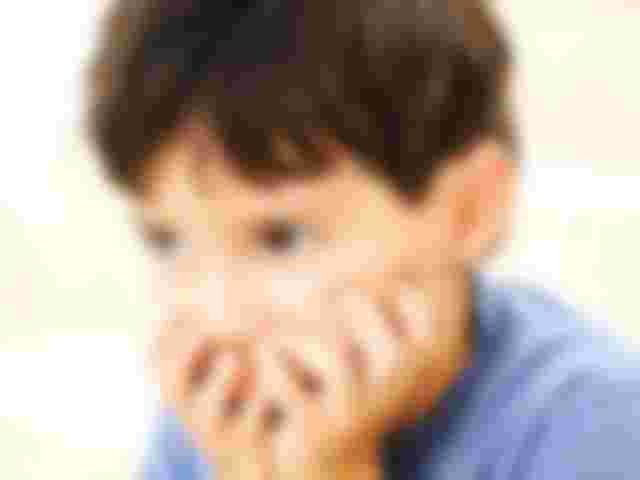Autism is a disorder that is affecting more and more people. The disease lasts a lifetime. Not only that, the next generation can also inherit this disease. According to a 2014 census, 1 in 8 children in the United States have symptoms of autism.

The word autism comes from a Greek word: "autos" meaning ego. The term was first used by a Swiss psychologist named Eugen Blueler. By 1911 he was using the term 'autism' to refer to certain symptoms of schizophrenia. Then, in the 1940's, British researchers introduced the term to refer to children with social or emotional problems. Johns Hopkins University researcher Leo Canner was trying to understand the causes of antisocial behavior in several children. He also chose this word. At the same time, a German scientist named Hans Asperger noticed some very close symptoms. They are now called Asperger's Syndrome.
In short, There are three main peculiarity of
Autism: 1. Social barriers
2. Inability to express oneself in language or other means
3. Being so busy with certain activities that disrupt daily activities
The way autism is caught
No medical tests to diagnose autism have come out yet. Instead, physicians or psychologists use some universally accepted behavioral methods to diagnose autism. A score is given to the patient following a set of rules based on the symptoms of the disease. If the score exceeds a limit then the patient falls under suspicion. Then a team of experts is needed to diagnose autism. It includes pediatricians or pediatricians, psychologists, speech-language pathologists, occupational therapists and many more.
Autism is a mystery to scientists. Even burning a lot of wood which has not been solved. And autism is quite different from all other brain tumors. This is because of the variety of symptoms, it is not possible to understand where the disease begins and where it ends. Therefore, autism is manifested in different patients in different levels. Their outward behavior is different, their ability to think independently is also different. To understand this huge diversity, autism is grouped into a larger group - Autism Spectrum Conditions or ASC.
Signs / symptoms
First, let's look at the variety of symptoms. The most obvious impression of autism is in social interactions. But, there are also various possibilities. Some people can't speak in public, some people can't express their feelings even if they speak. Another sign is the ultimate clumsiness in social etiquette. For example, I don't understand what people have to say, what they don't have. He has no idea how to deal with it. Making friends, what a little friendly behavior, is not in nature. Etc. etc.
Autism is a disorder that is affecting more and more people. He can be seen behind closed doors. For example, being stuck in a certain strenuous task. Doing the same thing over and over again with abnormal attention is often seen in autistic children.
But many times their different senses are much more alert than usual. Events that you and I may not notice, such as moving leaves or playing with light on a wall, become as interesting to them as a movie. The downside is that they can't ignore the difficulties that you and I can't overcome. Many times they are horrible to them. For example, touches of a particular fabric, or the sound of a particular frequency, or perhaps a mild taste in a disliked color or food. In the words of author Donna Williams: “Intense light, color and thousands of designs, all combine to put an unusual strain on the senses. The body responds in such a way that it is constantly attacked. One by one comes the headache, the anxiety, the anxiety or the tendency to retaliate. ”
Ordinary people do not even come close to autistic people in their ability to find patterns or designs.
Now let's come to the second point. Not all autistic patients are the same. On the one hand, there is autism, where speaking is a challenge. On the other hand there is Asperger's Syndrome, where there is no problem in speaking. I. Q. Above normal or normal. But in the case of both types of autistic patients the other social problems are the same or the space of common interest is similarly limited, which does not match with normal people in general. Aspergers, meanwhile, have some ability to surprise. Someone might be a great artist, someone might play with numbers, someone might be a champion in nuances like math or engineering.
This is not the end of diversity. Even among the common people, that is, those who have not been proven to be autistic, these characteristics are seen a little bit. Eminent neurologist Simon Baron-Cohen showed that autism-like traits are a little more common in society than among mathematicians, physicists or engineers. Renowned neurologist Simon Baron-Cohen showed that autism-like traits can be noticed a little more than usual among mathematicians, physicists or engineers in society. For that reason, autism is also categorized as a characteristic. As the name implies, Autism Spectrum Conditions or ASC.
Research on autism
Basically, the study runs from three perspectives.
Genetic research - finding chromosome defects, sequencing the entire genome, or manipulating genes in other animals - all fall into this type of research.
Neurological Research - Typically, this study uses images of the autistic patient's brain with magnetic resonance imaging (MRI) or electroencephalography (EEG) to compare images of the normal human brain.
Monitor the patient's behavior. There are several tests that can quickly differentiate autistic people from the general public. I've already talked about an experiment - finding the hidden shape. This is called embedded figures test.
Think differently about autism
Recent research suggests that different symptoms need to be looked at differently. For example, it doesn't matter how bad the patient's condition is. From that, a rating on social symptoms, another rating on work symptoms, a third rating on the intensity of the senses - the picture is much clearer. And in the case of molecular genetics, there should be no attempt to find a single 'autism gene'. Emphasis should be placed on finding out what genetic pattern contributes to various symptoms. Because, it is fairly clear that most genes alone are not responsible for many of the symptoms.
But the question remains. If no explanation is found, then why do these different symptoms attack together? It can't be a coincidence. One thing is noticeable from a genetic point of view. Although most genes are associated with a single symptom, there are some genes that give rise to multiple symptoms. Is that the key to the mystery? Or, in terms of behavioral research, could it be that one type of disability is related to another? Maybe, when one disability comes, another will come?
If we look for the second explanation, we have to look for the 'only' treatment for autism. This is a very important matter. This is a new thinking for families trying to understand what has happened to their children, psychiatrists pointing patients to a normal life, autistic people who are slowly becoming aware of their abilities and disabilities, or researchers looking for new drug-free treatments. Food. But until the mystery is solved, there is no way but to understand and overcome the symptoms.
